Stress & Anxiety, Part 2
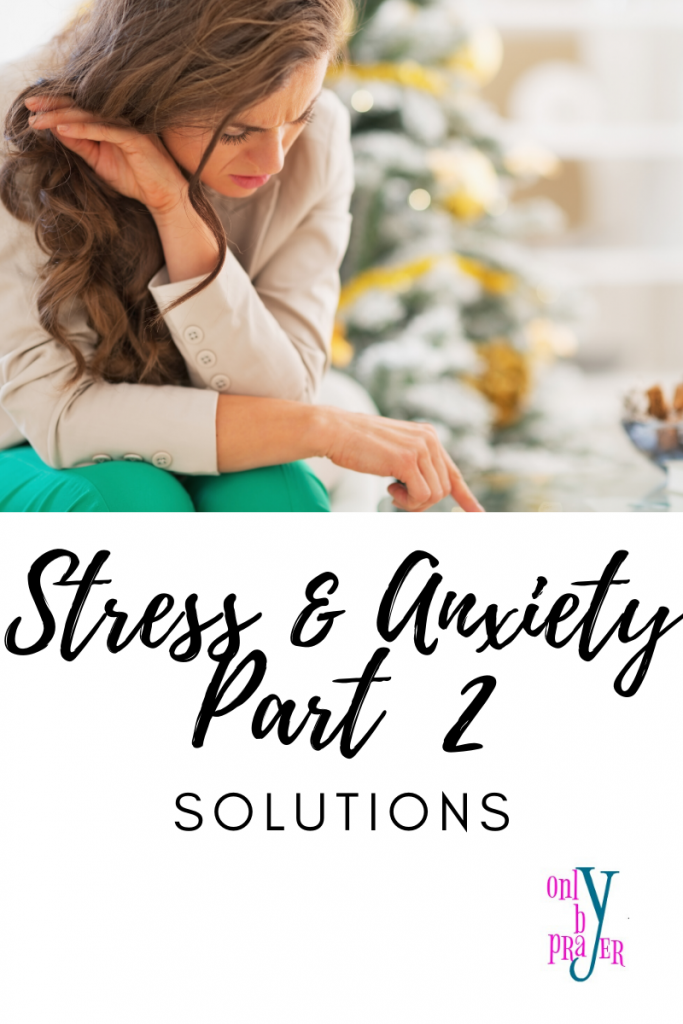
In Part 1 of this post, I looked at what was causing my own stress and anxiety, along with some issues that other people have told me they were dealing with too. Today I want to get to the good part: how to manage our stress and anxiety!
In just the few days since the first post in this series went live, nationwide (and worldwide) anxiety has ramped up even more with the numerous closings and cancellations due to the Coronavirus and the declaration of a national emergency. Most of us are feeling the fear and stress in our families, neighborhoods, and our country as we shelter at home.
God never meant for us to live in a state of chronic stress. But when life today looks drastically different than it did just a few weeks or even days ago, what are we to do? I’d like to suggest a few ways to manage your stress and anxiety that have worked for me; I hope you find some of them work for you as well.
Let’s get started!
How To Manage Stress & Anxiety
The Bible
First of all. the Bible has been my biggest help. Reading and memorizing God’s word continues to encourage, strengthen, heal, and give me hope and comfort. I have gained a lot of encouragement from a new Bible I purchased called The Battlefield of the Mind Bible by Joyce Meyers. It’s the Amplified version, which I have really enjoyed. The battle for peace begins in our minds.
As I have prayed through my anxiety, God has directed me to certain verses that I have memorized. In 2 Corinthians 10:3-5, Paul tells us that God’s weapon (His word) is divinely powerful to destroy these strongholds in our minds. Ask God to direct you to powerful, comforting scriptures. Write them down, memorize them and recite them often. They will lay a foundation of freedom.
Prayer & Journaling
Taking my concerns to God, listening for the voice of the Holy Spirit, and journaling what I hear have all been a comfort. The journaling has been important because I have a written record of what God has been showing me. I encourage you to give it a try. Use a notebook or online journal to record your thoughts, prayers, scriptures, and ideas that God plants in your mind.
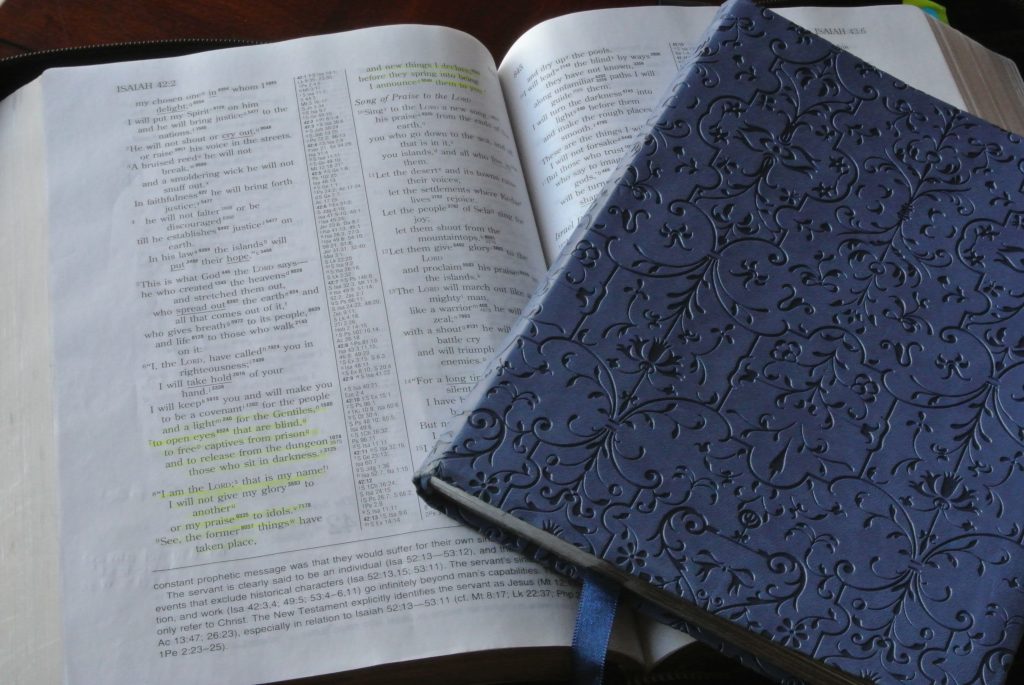
Over time, you’ll develop a storehouse of spiritual treasures that you can review time and again. You’ll be encouraged as you see how God is and has been faithful to you throughout your life.
The Enneagram
Next, learning about the Enneagram has been very helpful to me as I continue to study how to live out of the healthy level of alignment for a 6. I am discovering so much about myself. I encourage you to explore this if you haven’t. What is different about the Enneagram from other personality tests is that it is spiritually based with the goal of healing your weaknesses. You will learn so much about yourself and gain an understanding as to why you make the choices you do.
Joyce Meyer
Another helpful resource for me has been Joyce Meyer. Joyce is a Bible teacher and author. She has a wealth of resources including her podcast and television show called Enjoying Everyday Life. Joyce shows us how our battles are really fought in our minds and how to work through this. I have found her book Battlefield of the Mind (different than the Bible I talk about above) to be extremely helpful. Joyce’s podcast is also filled with spot-on encouraging truth.
Dr. Caroline Leaf
God has also lead me to the work of the Christian communication pathologist and cognitive neuroscientist Dr. Caroline Leaf. I am reading her book The Perfect You, and I have purchased and am using her Switch app. The app is pricey, but life changing. Her app and books teach us how to rid ourselves of toxic thinking and the mindsets that hold us back and actually damage our brains.
One of the things she emphasizes is that ups and downs are part of life and are even to be expected. We will not be happy all the time. Just as nature has seasons, so do our spiritual and emotional lives. When we struggle with our emotions both in our minds and bodies, we need to realize that these are warning signals for our us to acknowledge and explore deeper. We then need to reconceptualize the toxic thought, which will change our perception of it. This is a bit of a process, which she fully explains in her books and on the app.
Exercise
Exercise is a great stress reliever. Some of my favorite activities are walking and bicycling. I also like professional ballerina Ann Smith’s DVDs, such as Inhale, Exhale, Stretch & Move. Her DVDs are gentle yet effective and perfect for those dealing with arthritis, fibromyalgia, stress, and similar conditions.
I encourage you to get up and move. Exercise releases the “feel good” endorphins and truly helps to relieve stress. Check with your doctor to see if you have any limitations first.
Time in Nature
Psychologists are studying the effect that being outside in nature has on people, and the results are positive. They are finding that as little as two hours a week in nature can have positive effects: “It [being in nature] decreases heart rate, decreases blood pressure, decreases stress cortisol, [and] improves psychological well-being,” says Mathew White, an environmental psychologist at the University of Exeter.
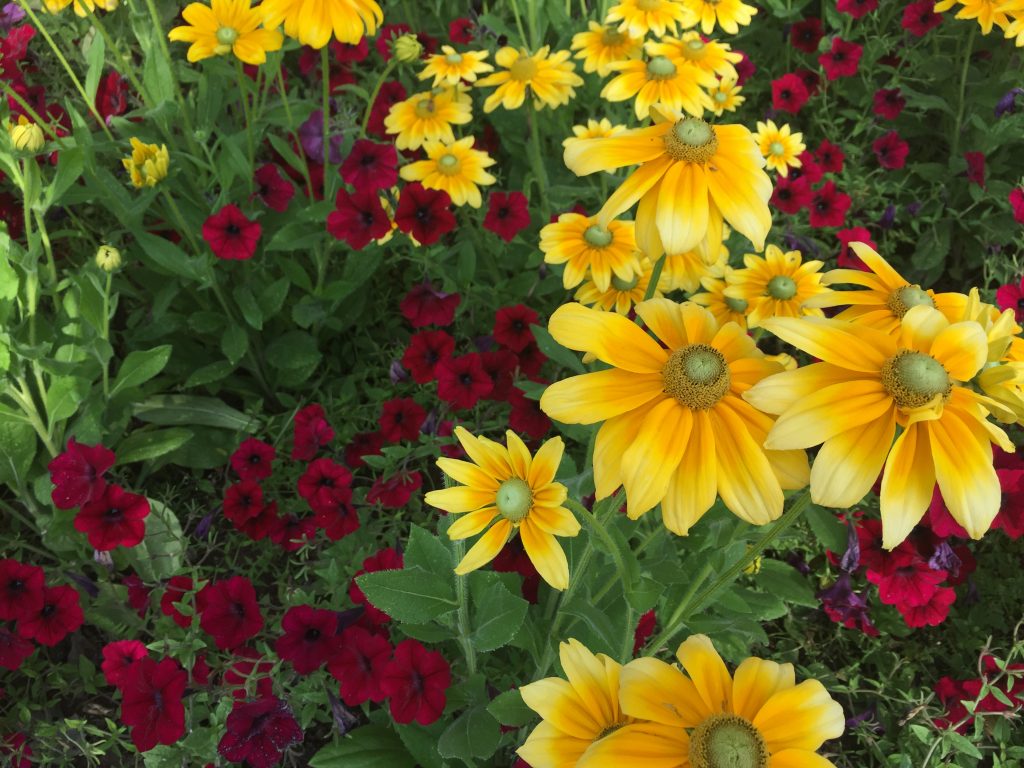
I love being outside. Gardening is one of my favorite activities. Try taking a walk in a park or woods and see if that doesn’t relieve some stress and make you feel more peaceful.
Let the heavens rejoice, let the earth be glad; let the sea resound, and all that is in it. Let the fields be jubilant, and everything in them; let all the trees of the forest sing for joy.
Psalm 96:11-12
Aromatherapy
As a certified aromatherapist, I can suggest a few ways to incorporate oils into your life. Before trying essential oils, consult with your doctor regarding any health issues or meds that may be contraindicated when using essential oils and herbs. Also, please use them safely. There is too much misinformation about essential oils. They are powerful, and you need to use them carefully. Don’t ingest them unless under the care of a medical doctor or clinical aromatherapist.
You must be extremely careful using them on/around children. Please read my Essential Oils for Kids: Safety guidelines before using on your children. When you’re ready, check out an article I wrote on 5 Ways To Use Essential Oils for Relaxation on my Botanically Me website.
Herbal Teas
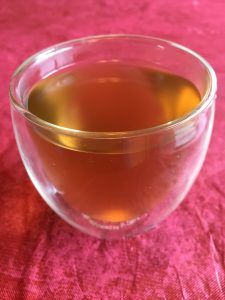
I also love using herbs. Herbs were our first medicines; the Bible is full of references to these healing plants, and they still retain medicinal properties that can be effective today. For example, different herbs have an affinity for certain systems of the body. Some herbs are immune stimulants, some work in the respiratory system, and some are good for the the central nervous system (stress and anxiety), and so on.
One of the easiest ways to use them is by making an herbal tea. I grow many of my own teas in my garden, and my favorite tea to drink fresh from the garden is a blend of Kapoor tulsi (also called holy basil) and lemon balm. It’s an incredible flavor combination and both tulsi and lemon balm are great options for reducing stress.
Now many of you may not have your own fresh herbs to use – especially during the late winter/early spring season. If that’s the case with you, then you can purchase bulk herbs at a health food store or online or buy herbal tea bags from a local store. These days you can find wonderful medicinal teas in almost every store including Walmart, Target, Kroger, Publix, Meijer, and so on. Here are a few favorites to try, all of which are caffeine free:
- Organic India Tulsi Sweet Rose Tea
- Traditional Medicinals Organic Echinacea Plus Elderberry Seasonal Tea
- Traditional Medicinals Organic Lemon Balm Herbal Tea
- Pukka Three Ginger Tea, Caffeine Free
Herbal Tea Information
If you’d like to experiment with making your own teas, here are a few articles from my Botanically Me website to get you started. Keep in mind that many grocery stores sell fresh prepackaged herbs or potted herb plants in the winter that you could use if you want to experiment with the following resources.
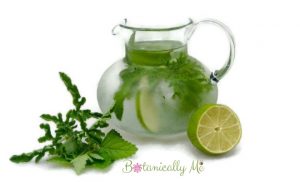
Prayers for You
Thanks for taking the time to read this. Feel free to share you favorite resources in the comments below. Also, I’d love to pray for you and your family, so Leave a message below on what you need prayer for, and I’ll write a prayer in response.
In these turbulent times, please know you are not alone as you struggle with stress and anxiety. God loves you and will tenderly care for you. We are also praying for you. God bless you and your families.
Note: A few of the links on this page are affiliate links meaning that if you purchase the item, I will receive a small amount of money in return. I only suggest things that I believe in and use myself. Thank you!

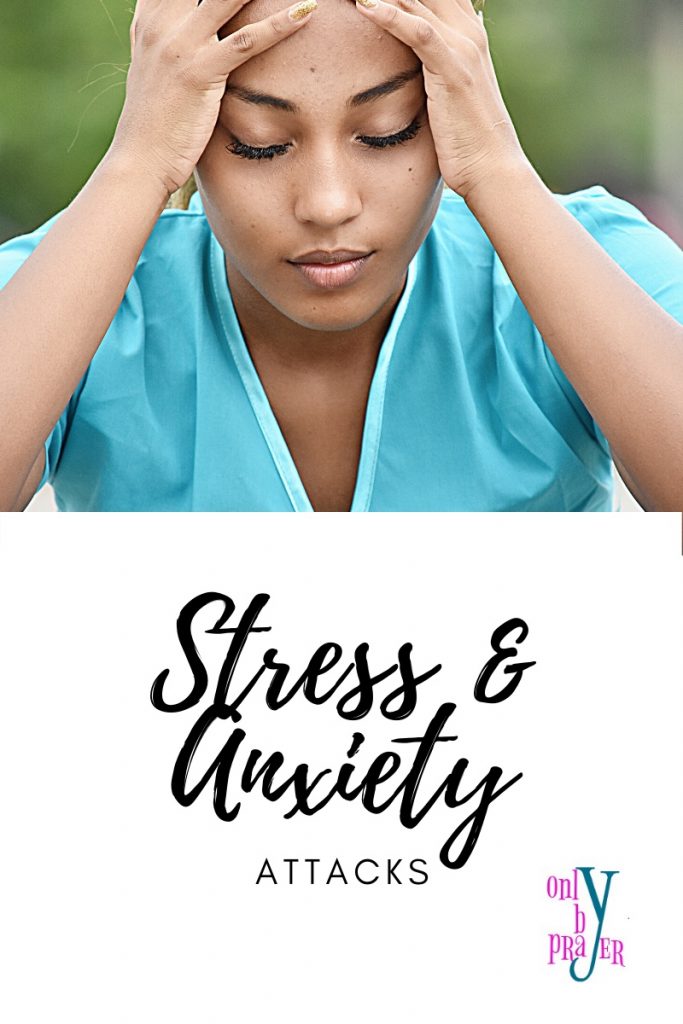
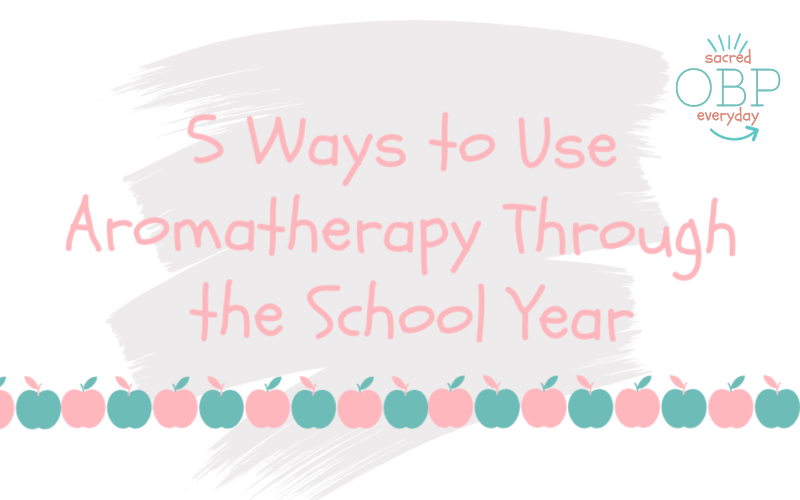
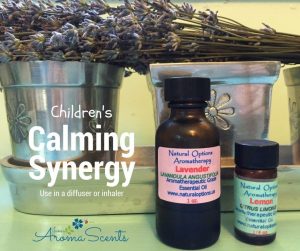
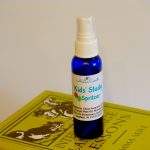 Study Spritzer
Study Spritzer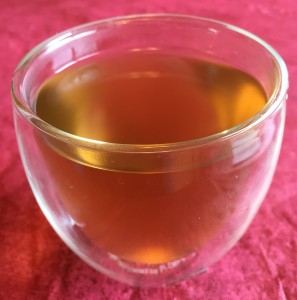 women have memories of missing—or being miserable through—some major event because of PMS woes. The combination of these three oils in a 3 percent dilution of a carrier oil may be enough to help relieve the suffering. Drinking a cup of herbal tea such as chamomile may help too!
women have memories of missing—or being miserable through—some major event because of PMS woes. The combination of these three oils in a 3 percent dilution of a carrier oil may be enough to help relieve the suffering. Drinking a cup of herbal tea such as chamomile may help too!






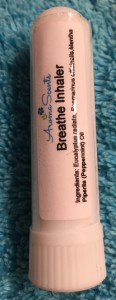
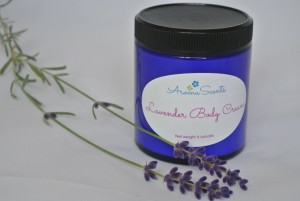 our hand, rub both hands together, and inhale the fragrance. I like to use lavender for this, since it is safe to use undiluted.
our hand, rub both hands together, and inhale the fragrance. I like to use lavender for this, since it is safe to use undiluted.

